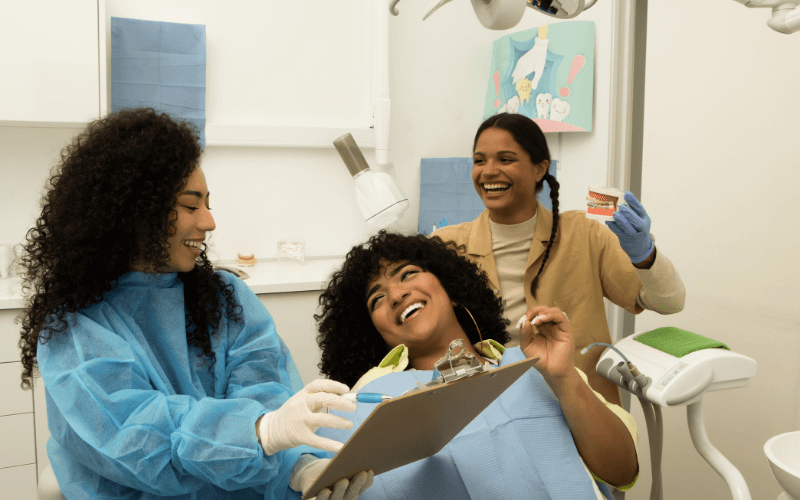
The Importance of Maternal Oral Health for Mothers and Children
News
Jun 28, 2024
Maintaining good oral health for mothers is crucial for their own well-being and their children’s health. A mother’s oral health, knowledge, literacy, attitudes, behaviors, and socioeconomic status significantly impact her children’s health and significantly prevent childhood caries. Understanding and addressing these facts can improve health outcomes for both mothers and their children.
The Role of Oral Health During Pregnancy
Pregnancy is a pivotal time for oral health interventions. Ensuring proper oral health during this period is vital, as untreated dental caries in mothers can increase their children’s risk of dental caries. It’s a prime time to encourage expecting mothers to adopt healthier oral hygiene practices. Regular dental visits during pregnancy are essential to prevent future dental issues for both mother and child.
Enhancing Oral Health Literacy
Oral health literacy is a powerful tool in the hands of mothers. It empowers them to make informed decisions about dental care. Mothers with higher oral health literacy are more likely to maintain good oral hygiene practices and understand the significance of dental health during pregnancy. Healthcare providers should prioritize educational initiatives to boost oral health literacy in expecting mothers.
Addressing Socioeconomic Factors
A mother’s socioeconomic status significantly affects her oral health. Those from lower socioeconomic backgrounds often encounter significant barriers to accessing dental care, including cost, lack of knowledge, and limited availability of dental services. Overcoming these challenges is essential to improving mothers’ and their children’s oral health outcomes.
Pregnancy Dental Care: Overcoming Barriers
Many pregnant women don’t seek or can’t access dental care despite its importance. This issue spans high and low- to middle-income countries. In the U.S., only 40% of mothers receive dental cleanings during pregnancy, with notable racial disparities. Dental professionals must be prepared and confident in providing necessary care to pregnant patients, following up-to-date guidelines and evidence-based practices.
Promoting Oral Health Equity
To achieve oral health equity, we must create healthcare systems that support mothers and children. This involves integrating oral health into primary and prenatal healthcare systems and ensuring all communities access necessary dental care resources. Encouraging environments that support proactive oral health attitudes can significantly improve children’s overall health and development.
Maternal Oral Health: Key to a Healthy Future for Mothers and Children
Maternal oral health is a foundational element of maternal and child well-being. By focusing on oral health during pregnancy, enhancing oral health literacy, addressing socioeconomic barriers, overcoming challenges in accessing pregnancy dental care, and promoting oral health equity, we can create healthier futures for mothers and their children. Health professionals and policymakers must prioritize integrating oral health care into prenatal health systems to achieve these objectives.
Understanding and addressing the critical aspects of maternal oral health can ensure better health outcomes for mothers and their children. Let’s work together to create a future where good oral health is a standard for all.
This is a summary from the original Federation’s Pages, “Oral health is an integral part of maternal and child health,” published on 25 June 2024. Read it in full here.
Original authors
Hyewon Lee, DrPH, DMD, is a director at the Global Maternal and Child Oral Health Center at the Seoul National University Dental Research Institute and School of Dentistry, Seoul, South Korea, and the chair of the Oral Health Workgroup of the World Federation of Public Health Association, Geneva Switzerland.
Khabiso J. Ramphoma, B.Ch.D, M.Ch.D, is a senior lecturer and specialist in Community Dentistry at the University of the Western Cape, Cape Town, South Africa.
Alice M. Horowitz, PhD, MA, RDH, is a research professor at the School of Public Health University of Maryland, Maryland, United States.
Deborah Walker, EdD, is an adjunct professor at Boston University and Tufts University, Boston, USA, and the Women, Children, and Youth Working Group Chair at the World Federation of Public Health Association, Geneva, Switzerland.
